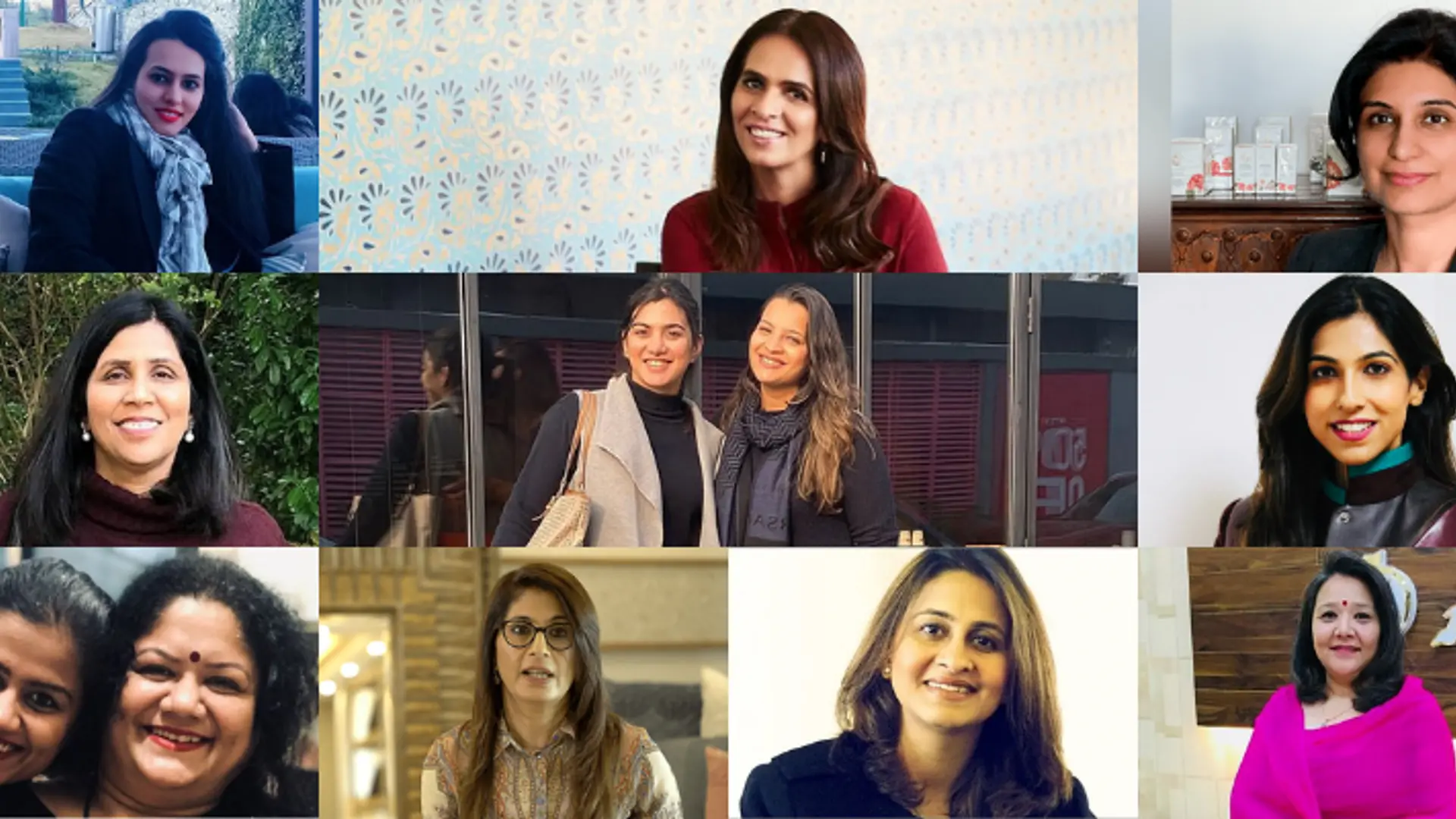From a graduate selling chai to an 80-year-old couple starting business, the top 10 SMB stories of 2022
As 2022 comes to an end, SMBStory revisits some of the most inspiring stories of small and medium businesses.
American actor and comedian Milton Berle famously said: “If opportunity doesn't knock, build a door.”
And that’s what business owners do, day in and day out.
Starting a small business can be daunting, considering the many obstacles and impediments the process brings along. But despite the many stumbling stocks, there’s no dearth of aspiring entrepreneurs across India.
Week after week, SMBStory brings you heartwarming stories of the small, medium, and large enterprises that showcase entrepreneurial spirit, determination, and initiative. As 2022 draws to a close, we shortlist the top 10 stories we carried on SMBStory this year.
Graduate Chaiwali
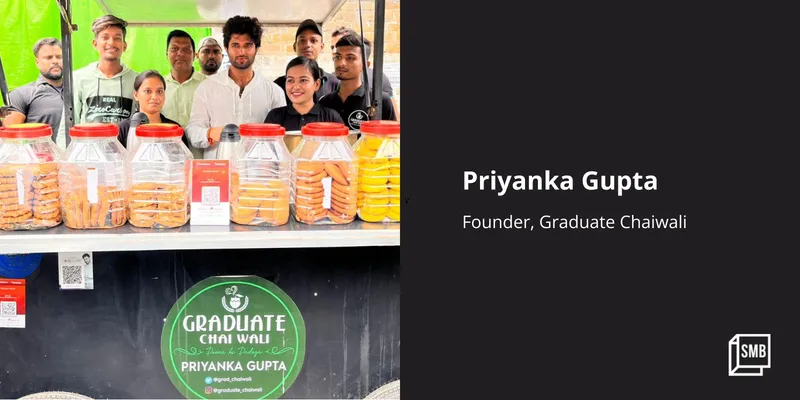
“Opening a tea stall is nothing new. Many people do that, but a girl, especially an economics graduate, selling tea on the road is not usual], and maybe that made me famous,” says Priyanka Gupta, aka , in an interaction with SMBStory.
Priyanka started a small tea stall in April 2022 outside Patna Women’s College in Patna, Bihar. In just four months, she has opened another tea stall in the city, selling around 400 cups of tea every day, and has made approximately Rs 1.5 lakh profit.
In August, actor Vijay Deverakonda, who was in Patna to promote his latest film, made a visit to Priyanka’s tea stall.
While Priyanka’s franchise business has been up and rising with two more stores in the city, the last two-three months have been tough for Priyanka after Patna municipality confiscated her shop.
In a recent interaction, Priyanka says she is rebuilding her shop and the challenges have only made her stronger. “The problem now is not money. I just want to stand firm to my vision and expand my business,” she says.
Avimee Herbal
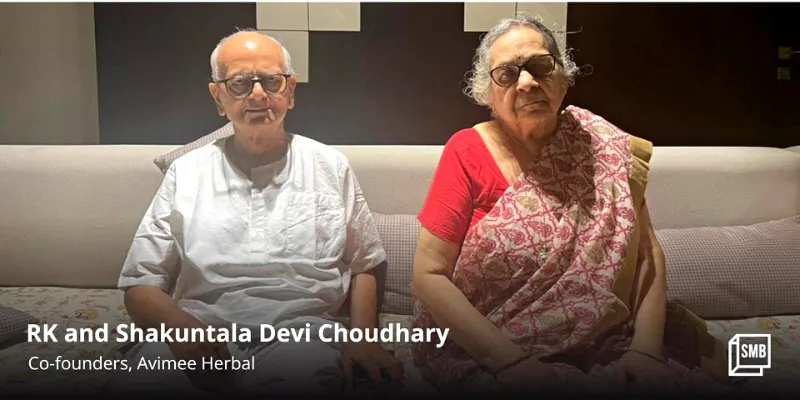
When Vinita Agarwal was having a hair fall problem during the second wave of COVID-19, her parents RK and Shakuntala Devi Choudhary—also known as Nanaji and Naniji—decided to make natural hair oil at home.
Today, the couple has become an internet sensation, especially after the business enabled Nanaji to recently buy his first car at the age of 85.
From one to two orders per day, started receiving thousands when their grandson Siddhant Agarwal and his wife Ambika posted about the hair oil on Instagram and created a page for them.
Nanaji was even invited to Indian Idol because of his inspiring story.
The brand has even expanded to five more product ranges in the last three months and has achieved a sales run rate of Rs 25 crore, Siddhant says.
Sunrise Bakers
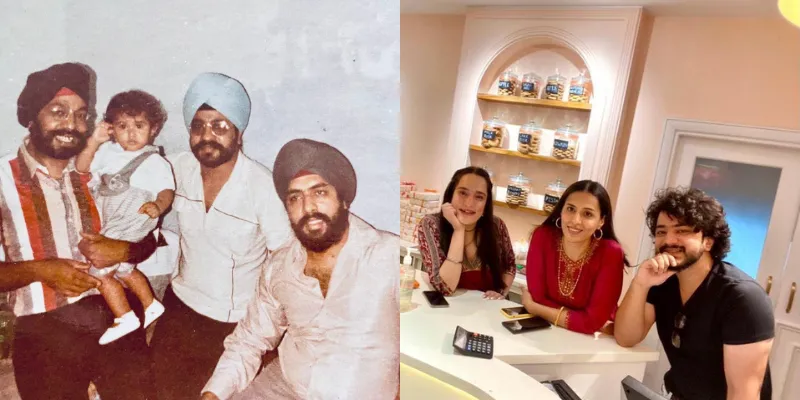
Second-generation and third-generation entrepreneurs of Sunrise Bakers (left and right)
In a busy market lane of one of the oldest cities in India, Dehradun, stands . Over 60 years after it first came into existence, the bakery, expanded and opened a second outlet in the city in December 2021.
The expansion was noteworthy as it came after a particularly difficult year for the family-run legacy business, with the death of Amarjit Singh Jolly and Harmeet Singh Jolly, both second-generation entrepreneurs who were carrying the legacy inherited from their father Harnam Singh Jolly.
Talking to SMBStory, Rishika Jolly, third-generation entrepreneur and daughter of Amarjit Singh, says despite the challenges through all these years, the bakery has been running profitably since its inception.
In 2022, Sunrise Bakers came up with festive baskets. The company also introduced new pastry ranges and is coming up with a D2C website soon.
Emerging in Amrit Kaal: How MSMEs in 2023 will define the roadmap for Atmanirbhar Bharat
Dupatta Bazaar
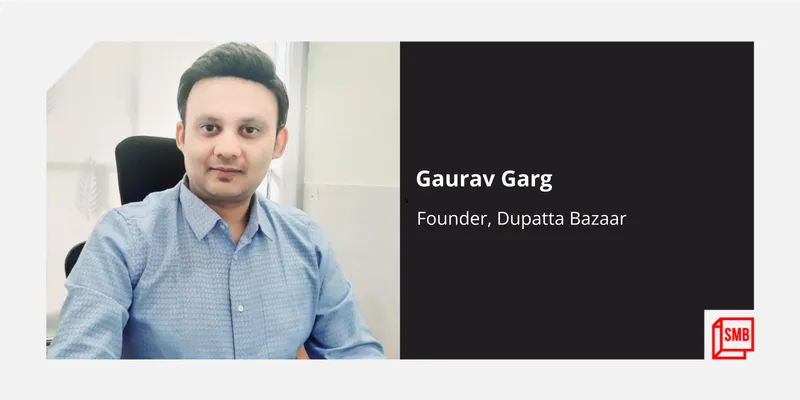
From the quality of fabric to colour, design, and length, finding the right dupatta to match a dress is exhausting. And, this is where , run by Gaurav Garg, bridges the gap.
Gaurav’s a-ha moment came in Mumbai’s Crawford Market where he saw a woman struggling the entire day to get a dupatta matching her outfit. Hailing from a family involved in the textiles business in Rajasthan, Ajmer, he was surprised. “I thought that artisans and shopkeepers dealing in dupattas in Rajasthan struggle to get customers and here customers were actually pleading for those same products.”
He decided to start a one-stop shop for all dupatta needs. In 11 years, he has completed more than seven lakh orders and created a presence beyond Indian boundaries. The business grew by 300% this year, says Gaurav, adding that the rural artisan base he works with has doubled to close to 1,500.
The Tea Factory
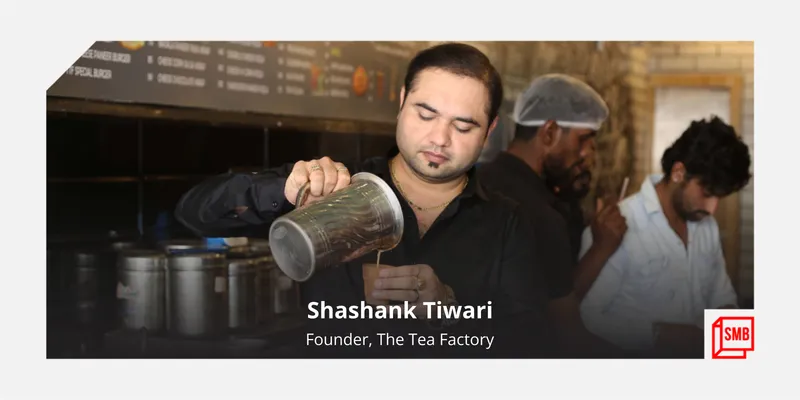
A decade ago, the then 22-year-old entrepreneur Shashank Sharma decided to open a tea café on the lines of a popular coffee café chain.
“I was inspired by Cafe Coffee Day (CCD). People used to hop to CCD for business networking, dating, or anything. After graduation, I was thinking of a business idea and discussing my plans with my friends at a chai tapir. We were talking of CCD’s success, and I [thought] why can’t I open a tea cafe?” Shashank tells SMBStory.
In 2012, there was already a tea cafe brand established in the Indian market but that was operating out of a big city, says Shashank adding that he thought of bringing a tea cafe with a variety of offerings to his own city—Indore.
Shashank went on to build The Tea Factor, which now has 300 outlets and a global presence across the UAE, Canada, the UK, Nepal, and Bangladesh.
MBA Chaiwala
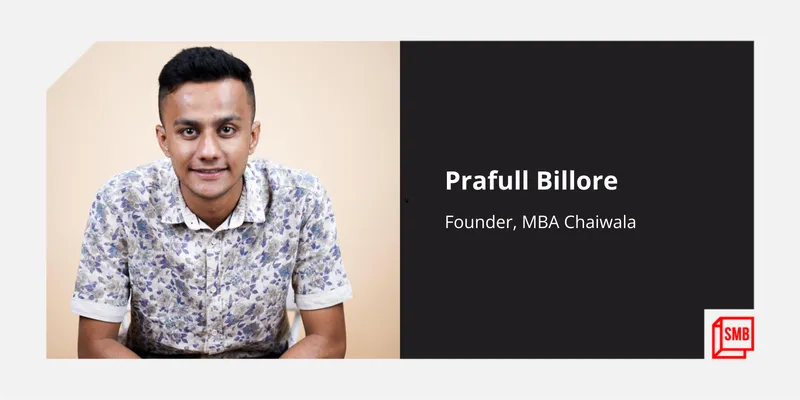
“Karna tha sangharsh toh road pe chai banaya (As part of my struggles, I made roadside tea),” says Prafull Billore, famously known as ‘’. Neither is Prafull a foodie nor is he very fond of cooking, but he still built a multimillion business of selling chai (tea) across India.
Hailing from Dhar, a small town in Madhya Pradesh, Prafull had lost his passion for MBA, which he had been pursuing from Ahmedabad University since 2017. However, reading books and learning from the quotes of famous business leaders kept him motivated.
Fast forward five years and the 25-year-old is now a multi-millionaire entrepreneur who has built MBA Chaiwala, a Rs 4 crore turnover business (as of FY21) with more than 100 outlets pan India.
Raheja Solar Food Processing
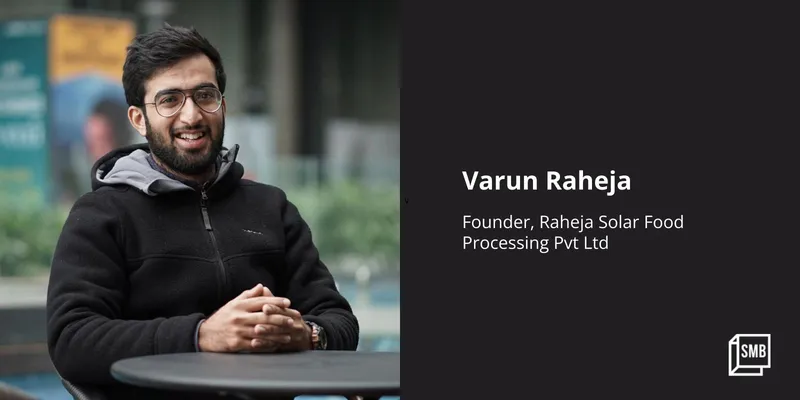
One way to reduce food wastage is by drying fresh produce. Varun Raheja, Founder of , says the global demand for dried produce is currently worth $70 billion.
Varun, a 25-year-old entrepreneur from Indore, says the inspiration to launch the company came after he learnt about sustainable living and practices at Jimmy McGilligan Centre for Sustainable Development, an NGO in Indore.
His interest in solving farmers’ woes led him to research solar dryers. A few years later, in 2019, he launched his own company. Since its inception, Varun claims the company has been able to reduce the wastage of 250 MT of produce by farmers across India.
EcoCushion Paper
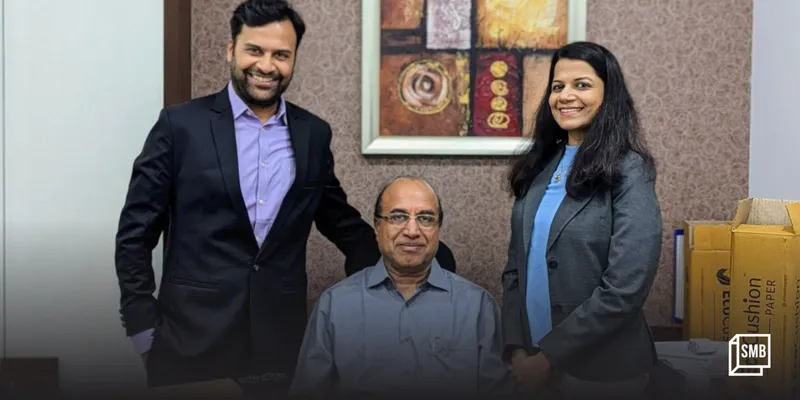
For 40 years, Mahesh Agarwal worked with his cousins in their family business in Delhi. However, during the pandemic, Mahesh had to move to Mumbai to be with his children.
It was during the process of relocation in 2020 that Mahesh observed the amount of plastic that was used as protective packaging.
“There was plastic everywhere around the floor,” Mahesh's daughter Varsha says, adding, “We all know plastic is harmful to the environment but when we saw the amount being used just for vacating our house, and how much problem it would pose to the environment, we contemplated the overall use of plastic every day by everyone around us.”
The incident gave Mahesh a reason to start a business again in his retirement age.
“We moved to Mumbai and he spent initial six to eight months on research. He then came up with the idea of making honeycomb paper wrap as a substitute for plastic bubble wrap,” Varsha says.
By June 2021, they set up a manufacturing facility in Navi Mumbai and kickstarted the business via a B2B website. They invested around Rs 50 lakh to start the business. In July, they received their first order from a small business and since then, EcoCushion’s journey has been upwards. In a span of a year, has onboarded more than 2,000 small and medium businesses including Aadvik Foods, Upakarma Ayurveda, The June Shop, Mars Cosmetics etc., and corporations like Westside, Nestle R&D, 1MG, and more.
IoTechWorld Avigation
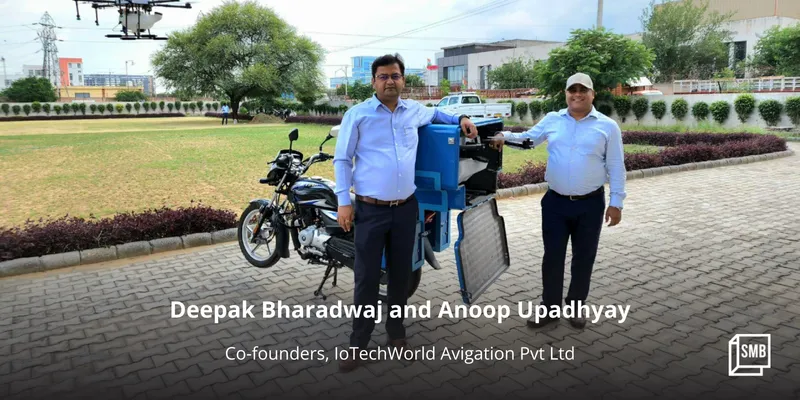
-
The journey of Avigation, India’s first type-certified kisan drone company, began in 2017 when Deepak Bharadwaj and Anoop Upadhyay decided to enter the drone market which was making inroads into India.
While Deepak was initially inclined towards the defence space, the duo decided to focus on the agriculture sector after seeing the need for technology to help farmers with enhanced crop production and make agricultural practices efficient. The duo invested around Rs 6 lakh to Rs 7 lakh from their savings to set up the base in Gurugram.
Between 2017 and 2020, the company sold around 200 drones to farmers.
Things took a turn in 2021 when the government laid out the budget for the drone PLI scheme and even drafted rules for manufacturing. Since then, the sector has seen a boom with more than 200 entrants in the growing space.
IoTechWorld Avigation now manufactures 55% of its hardware components at its Gurugram facility. In the next two to three years, it aims for 100% indigenous production by setting up another unit in Hyderabad.
NavAlt

While ferries may seem like a cleaner mode of transportation, most ferries run on diesel—a highly polluting fossil fuel.
To help solve this problem, Kerala launched India’s first solar-powered ferry boat ‘Aditya’ in 2017. Promoting the use of clean energy, the boat prevents the burning of 35,000 litres of diesel each year and helps reduce carbon dioxide emissions.
Sandith Thandasherry, Founder and CEO of Kochi-based and Electric Boats, claims the boat has saved 100,00 litres of diesel to date. But hasn’t stopped innovating; he’s working to build available green energy-powered RORO (cargo ships) and advanced techniques ships and boats for fishermen that are affordable and easy to use.
Edited by Teja Lele



